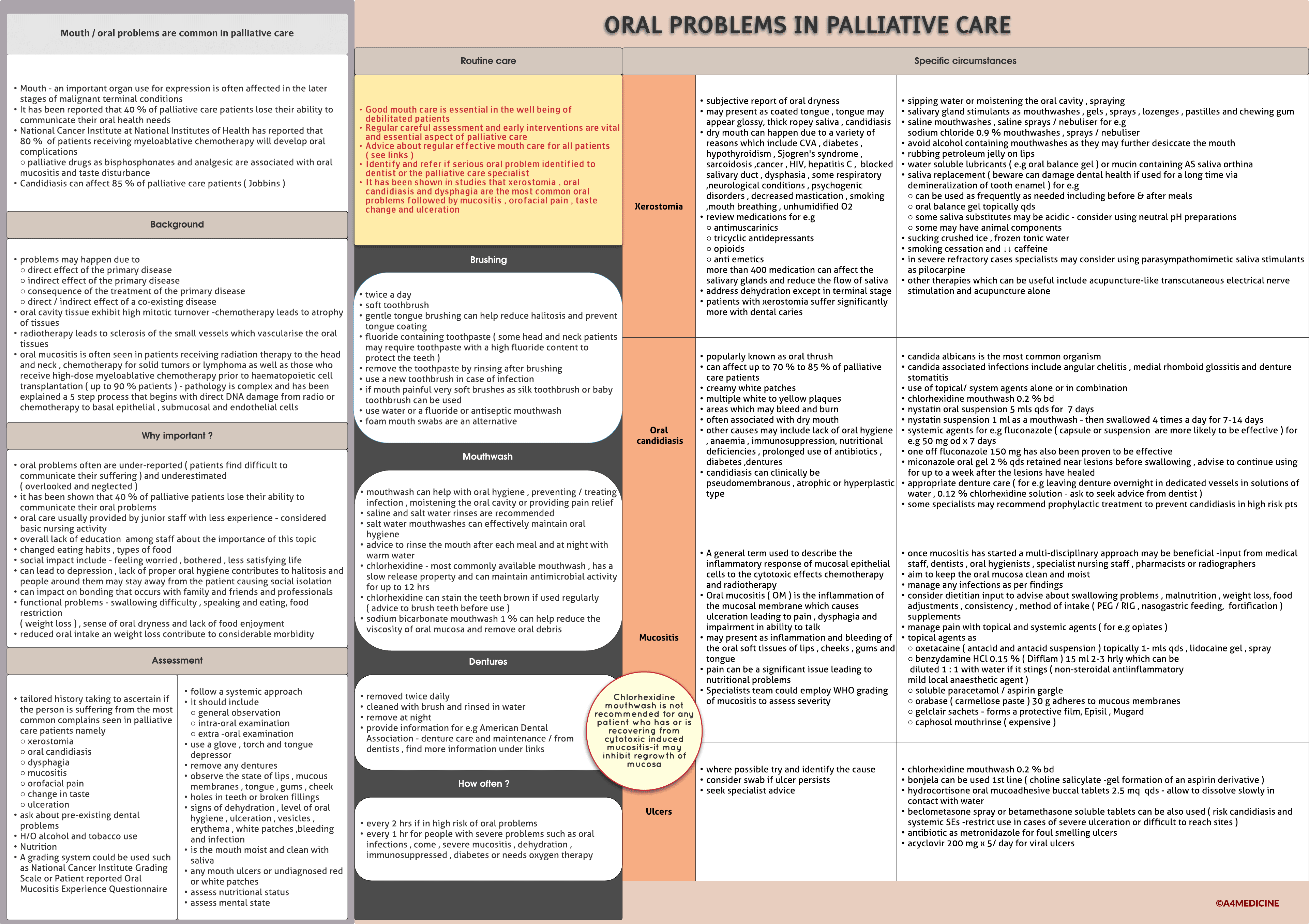Download A4Medicine Mobile App
Empower Your RCGP AKT Journey: Master the MCQs with Us!

Mouth / oral problems are common in palliative care
Mouth - an important organ use for expression is often affected in the later stages of malignant terminal conditions It has been reported that 40 % of palliative care patients lose their ability to communicate their oral health needs National Cancer Institute at National Institutes of Health has reported that 80 % of of patients receiving myeloablative chemotherapy will develop oral complications○ palliative drugs as bisphosphonates and analgesic are associated with oral mucositis and taste disturbance Candidiasis can affect 85 % of palliative care patients ( Jobbins )
Background - problems may happen due to○ direct effect of the primary disease○ indirect effect of the primary disease○ consequence of the treatment of the primary disease○ direct / indirect effect of a co-existing disease oral cavity tissue exhibit high mitotic turnover -chemotherapy leads to atrophy of tissues radiotherapy leads to sclerosis of the small vessels which vascularise the oral tissues oral mucositis is often seen in patients receiving radiation therapy to the head and neck , chemotherapy for solid tumors or lymphoma as well as those who receive high-dose myeloablative chemotherapy prior to hematopoietics cell transplantation ( up to 90 % patients...
Try our Free Plan to get the full article.